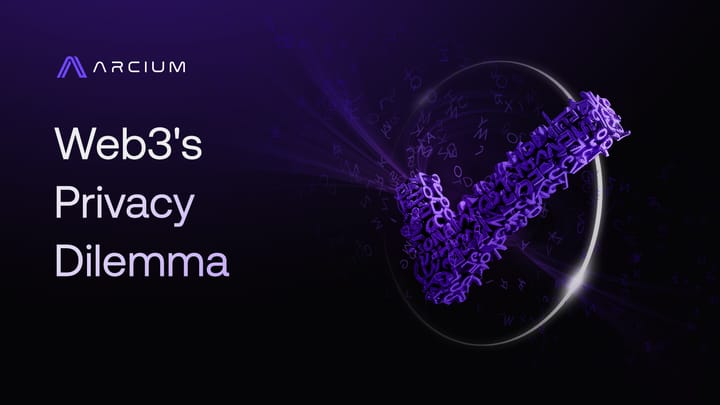Web3's Privacy Dilemma

Introduction
Let's break down two important terms: privacy and compliance. Privacy is straightforward, it's all about being free from prying eyes. Compliance, on the other hand, deals with adhering to laws or regulations. These concepts often seem to clash, particularly as we generate more digital data. Maintaining privacy while also obeying laws governing how privacy is managed is a real challenge. At the heart of both is trust, yet trust can be incredibly subjective. How do we ensure that someone seeking privacy has honest intentions? And what about the policymakers who decide the extent of our data privacy, are they trustworthy? This leads us to a privacy dilemma: How can individuals keep their data private while also complying with laws designed to protect that data from harmful activities?
Bridging the Gap
Many individuals tirelessly uphold the importance of encryption to protect personal privacy. But it comes down to trust once again. These individuals want their sensitive data to remain safe and secure while maintaining control of it. Policymakers want data to remain safe and secure but want to ensure that sensitive information is not exploiting complex systems and laws. This gap in trust can lead to rushed and broad regulations that might threaten privacy on a large scale, even though the desired outcome is the same in both camps.
Our team at Arcium has set out to develop a platform capable of executing Multi-Party Computation Execution Environments (MXE). The core of our platform ensures that data remains encrypted and private throughout its lifecycle and is only used for explicitly defined purposes. This advanced capability is achieved by integrating secure MPCs (Multi-Party Computation) combined with FHE (Fully Homomorphic Encryption), threshold secret sharing, and distributed key generation (DKG) all of which we will release more details about in upcoming articles.
All of this is to say that using cryptographic primitives helps us initiate a holistic privacy that satisfies both sides. You can send and receive sensitive data without revealing this information to any prying eyes or even a third party to decrypt. While ensuring that this data is being used for explicitly defined purposes, adhering to a trustless collaboration: Collaboration and data sharing within a decentralized framework, ensuring maximum security and flexibility without the dependency on centralized, high-risk hardware vendors or broad regulations.
Future Sight
Bridging the gap between privacy and compliance will be crucial for wide-scale privacy adoption across Web3. Protecting personal privacy and sensitive data is an inherent right that must remain individually controlled, but it also must remain compliant. An encrypted Solana is around the corner, powered by Arcium’s platform. Not only will individuals be empowered, but our protocol will enable developers and builders to implement this technology into new and existing applications across a broad array of fields, while remaining compliant and safe. We are proud to bring practical privacy features to Solana and initiate our vision of a privacy-preserving future for all.
Our team has rolled up its sleeves, prepping for the Testnet launch. To stay updated on our progress, follow us on X and join our community on Discord

